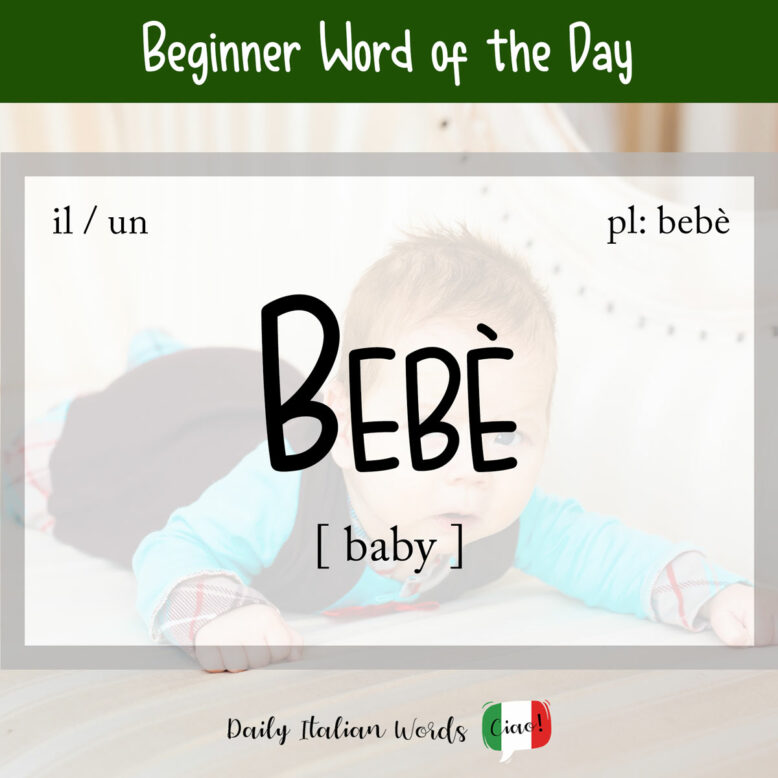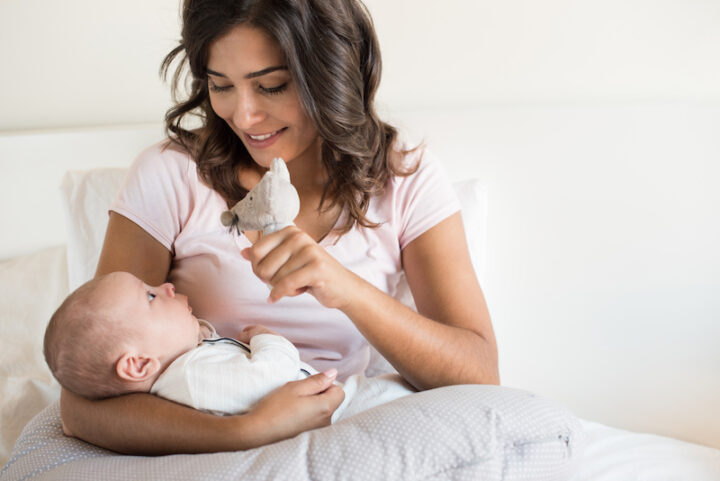The word bebè (masculine, invariable) is an affectionate way of saying baby or infant in Italian. It entered the language via the French bébé which itself comes from the English baby.

Although the most commonly used terms for baby are bambino for a boy and bambina for a girl, they are somewhat problematic as they can refer to any child between infancy and adolescence.
In order to specify the age of the child in question, you’ll often hear people use the more descriptive terms bambino/a piccolo/a (small child) or bimbo/a (an affectionate term for a child on the younger end of the spectrum) but neither is quite as unambiguous as bebè.
Note: When talking about a newborn baby, it is more appropriate to use the words neonato for a boy or neonata for a girl.
Funny anecdote: When I first started working as an au pair for an Italian family in Turin, the mother, who initially spoke to me in English, would always refer to her three children as babies. This confused me until I learned how broad the meaning of bambino is!
Quali giochi dovrei scegliere per un bebè di sei mesi?
Which toys should I choose for a 6-month-old baby?

The expression alla bebè means infantile, for babies or in the manner of a baby. For example:
- colletto alla bebè = a small round collar typical of those on baby shirts
- capelli alla bebè = a female hair cut that is very short at the nape (also known as capelli alla maschietta, with maschietta being the feminine of maschietto, little boy)
A fascia porta bebè is a robust sling used to carry babies whereas a zaino porta bebè is a kind of baby carrier with support and padding that you can wear on your back like a backpack.
Finally, a bonus bebè is another way of saying assegno di natalità, which translates as child benefit o birth allowance.
Hai già fatto domanda per il bonus bebè? Puoi scaricare il modulo dal sito internet.
Did you already ask for child benefits? You can download the form from the website.
Note: Whereas in English, we use the term baby towards a lover or spouse as an informal form of address or term of endearment, the word bebè in Italian can only be used for an actual baby.
Heather Broster is a graduate with honours in linguistics from the University of Western Ontario. She is an aspiring polyglot, proficient in English and Italian, as well as Japanese, Welsh, and French to varying degrees of fluency. Originally from Toronto, Heather has resided in various countries, notably Italy for a period of six years. Her primary focus lies in the fields of language acquisition, education, and bilingual instruction.


